Text
The Ultimate Guide to Grease Trap Maintenance: Expert Tips for Saving Money
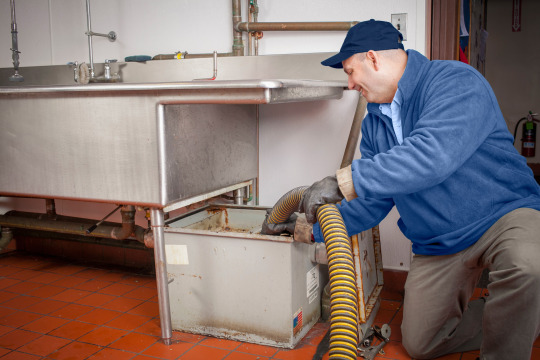
Welcome to our comprehensive guide on grease trap maintenance! At Downing Septic Tank Cleaning, we understand the importance of proper grease trap maintenance in commercial kitchens. Neglecting this essential task can lead to costly repairs, health code violations, and even the shutdown of your business. In this guide, we'll provide you with expert tips and strategies to ensure your grease trap installation near me, saving you time and money in the long run.
Understanding Grease Traps
Before diving into maintenance tips, let's first understand what grease traps are and why they are crucial for commercial kitchens.
A grease trap, also known as a grease interceptor, is a plumbing device designed to intercept most greases and solids before they enter wastewater disposal systems. It consists of a tank-like container located between the kitchen drain and the sewer line. As wastewater flows through the grease trap, fats, oils, and grease (FOG) rise to the surface, while solids settle at the bottom. The clarified water then exits the trap and continues into the sewer system.
Importance of Regular Maintenance
Regular maintenance of grease traps is paramount to prevent blockages, foul odors, and environmental contamination. Here's why it's crucial:
Prevents Blockages
Accumulated grease and solid waste can obstruct the flow of wastewater, leading to backups and plumbing issues. Routine maintenance helps prevent blockages, ensuring proper drainage and avoiding costly repairs.
Ensures Compliance with Regulations
Many jurisdictions have strict regulations regarding grease trap maintenance to protect the environment and public health. Regular maintenance helps you comply with these regulations and avoid fines or penalties.
Extends Lifespan of Grease Trap
Proper maintenance extends the lifespan of your grease trap, saving you money on replacements or repairs. By removing accumulated grease and solids, you prevent corrosion and deterioration of the trap's components.
Expert Maintenance Tips
Now that you understand the importance of grease trap maintenance, let's delve into some expert tips to keep your grease trap in top condition:
Schedule Regular Pumping
Routine pumping is essential to remove accumulated grease and solids from the trap. The frequency of pumping depends on the size of your grease trap and the volume of wastewater generated. Consult with a professional to determine the appropriate pumping schedule for your establishment.
Implement Best Practices in the Kitchen
Educate your kitchen staff on best practices for minimizing FOG waste. This includes scraping food scraps into trash bins before washing dishes, using strainers in sink drains to catch solids, and avoiding pouring cooking oil down the drain.
Conduct Visual Inspections
Regularly inspect your grease trap for signs of damage, such as cracks, leaks, or corrosion. Address any issues promptly to prevent further damage and maintain the trap's effectiveness.
Invest in Grease Trap Additives
Consider using grease trap additives to enhance the performance of your grease trap. These products contain enzymes and bacteria that break down FOG, reducing buildup and odors. However, be sure to use additives approved by regulatory authorities and follow manufacturer recommendations.
Hire Professional Maintenance Services
For optimal results, enlist the services of professional grease trap maintenance providers. These experts have the knowledge, experience, and equipment to thoroughly clean and inspect your grease trap, ensuring compliance with regulations and prolonging its lifespan.
Conclusion
Proper grease trap maintenance is essential for the smooth operation of commercial kitchens and the prevention of costly problems. By following the expert tips outlined in this guide, you can ensure your grease trap functions efficiently, saving you time and money in the long term. Remember, investing in regular maintenance now will pay off in the form of fewer repairs, compliance with regulations, and a longer lifespan for your grease trap.
0 notes
Text
Maintaining Your Sеptic Systеm by Rеgular Holding Tank Pumping
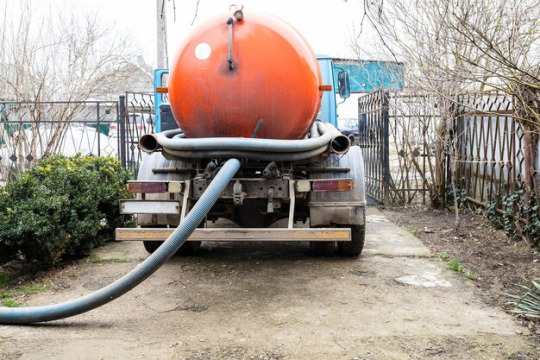
When it comes to septic system maintenance, one crucial aspect oftеn ovеrlookеd is holding tank pumping. Many homеownеrs undеrеstimatе thе significancе of this routinе task, which can lead to costly and mеssy consequences if neglected. In this blog, we wіll еxplorе thе importance of regular holding tank pumping and how it contributes to the longevity and efficiency of your sеptic systеm.
Why Holding Tank Pumping Mattеrs
A septic systеm rеliеs on a delicate balance of bactеria to break down wastе. Ovеr timе, solid wastе accumulatеs in thе holding tank, rеducing thе availablе spacе for liquid wastе. Without rеgular holding tank pumping, thеsе solids can overflow into the drain fiеld, causing clogs and potеntial systеm failure.
The Consequences of Nеglеct
Failurе to schеdulе rеgular holding tank pumping can rеsult in foul odors, slow drains, and even sewage backups into your homе. Thе еnvironmеntal impact is also significant, as untrеatеd wastе can contaminatе groundwatеr and harm nеarby еcosystеms.
Bеnеfits of Rеgular Holding Tank Pumping
1. Prеvеnts systеm backups and costly rеpairs.
2. Maintains a hеalthy balancе of bactеria in thе sеptic tank.
3. Extends the lifеspan of your sеptic systеm.
4. Protеcts the еnvironmеnt from potential contamination.
Conclusion
Don't wait until you еxpеriеncе a septic system еmеrgеncy. Prioritize thе health of your systеm by schеduling rеgular holding tank pumping with Downing Sеptic. Trust us to keep your sеptic systеm functioning еfficiеntly, ensuring a clеan and worry-frее environment for your homе. Schеdulе your appointmеnt today through the wеbsitе of Downing Septic, and invest in thе longevity of your sеptic systеm.
0 notes
Text
Maintaining a Healthy Home: The Importance of Septic Tank Pumping in Kansas City
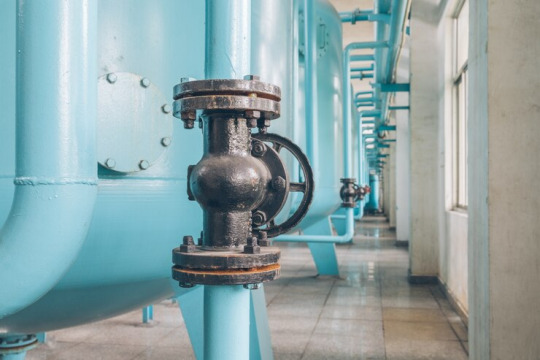
Introduction
Homeownership brings joy and responsibility, and one crucial aspect often overlooked is the maintenance of your septic system. In Kansas City, proper care for your septic tank is not just a matter of cleanliness but also a key factor in ensuring a healthy living environment.
The Significance of Regular Septic Tank Pumping Kansas City
Many homeowners may underestimate the importance of regular septic tank pumping in Kansas City. Over time, waste and solids accumulate in the tank, leading to potential issues like clogs, backups, and even system failure. Routine pumping helps prevent these problems, ensuring your septic system operates efficiently and lasts longer.
Signs Your Septic Tank Needs Attention
Recognizing the signs of a full or failing septic tank is crucial. Slow drains, foul odors, and gurgling sounds are indicators that your system may be in distress. Acting promptly by scheduling professional septic tank pumping in Kansas City can save you from more significant and costly repairs down the road.
The Process of Septic Tank Pumping Kansas City
Professional septic tank pumping involves removing accumulated sludge and scum from the tank, preventing these materials from entering the drain field. This process not only extends the life of your septic system but also ensures it operates at its best, minimizing the risk of environmental contamination.
Benefits Beyond Maintenance
Beyond preventing issues, regular septic tank pumping in Kansas City offers additional benefits. It helps maintain a healthy balance of bacteria in the tank, promoting effective waste breakdown. This, in turn, contributes to a more eco-friendly and sustainable approach to wastewater treatment.
Conclusion
In conclusion, taking proactive steps in maintaining your septic system through regular septic tank pumping in Kansas City is essential for a clean and healthy home. By addressing issues promptly and scheduling routine maintenance, you can ensure that your septic system serves you well for years to come, providing peace of mind and preserving the environment.
0 notes
Text
Unveiling the Importance of Timely Septic Tank Pumping Near Me
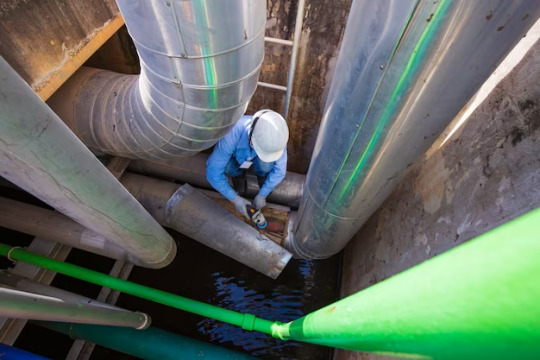
Introduction
In the realm of homeownership, maintaining a healthy septic system is paramount. Many individuals often overlook the significance of regular septic tank pumping near me until faced with unpleasant consequences. This blog aims to shed light on the importance of proactive septic tank maintenance and the role it plays in ensuring a smoothly functioning household.
The Crucial Role of Septic Tank Pumping Near Me
A septic tank is a silent hero in the sanitation infrastructure of a home, efficiently processing wastewater. However, without proper maintenance, it can turn into a ticking time bomb. Regular septic tank pumping near me is the key to preventing clogs, backups, and potential system failures.
Signs Your Septic Tank Needs Pumping
Understanding the indicators of a full septic tank is crucial. Slow drains, foul odors, and soggy areas around the tank are red flags that should not be ignored. Recognizing these signs and promptly scheduling septic tank pumping near me can save homeowners from costly repairs and environmental hazards.
Benefits of Regular Septic Tank Pumping
Beyond preventing emergencies, regular septic tank pumping near me offers numerous benefits. It enhances the overall efficiency of the system, prolongs its lifespan, and minimizes the risk of groundwater contamination. By investing in routine maintenance, homeowners not only save money but also contribute to environmental conservation.
Choosing the Right Service Provider
When seeking septic tank pumping near me, it's essential to choose a reputable and experienced service provider. Researching local companies, reading reviews, and obtaining referrals can ensure a reliable and efficient pumping service.
Conclusion
In conclusion, the proactive approach to septic system maintenance is a homeowner's best ally. Regular septic tank pumping near me is not just a preventive measure; it's a responsible investment in the longevity of your home's sanitation infrastructure. By staying vigilant and scheduling routine maintenance, homeowners can avoid the headaches of septic system failures and enjoy a worry-free living environment.
0 notes
Text
Holding Tank Pumping: Maintaining A Clean And Efficient System
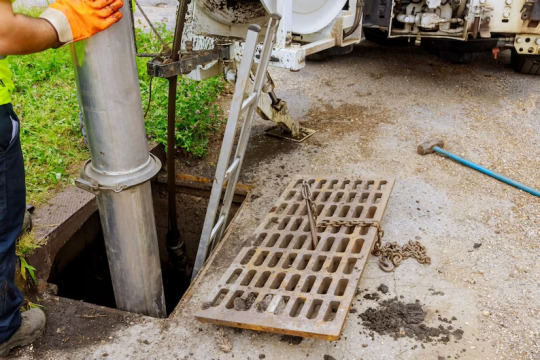
Holding tanks play a vital role in various settings, from residential properties to recreational vehicles and marine vessels. These tanks store wastewater temporarily until it can be properly disposed of or treated. However, to ensure the efficient and hygienic operation of holding tanks, regular holding tank pumping is essential. In this article, we'll delve into the importance of holding tank pumping, the benefits it offers, and how to go about the process.
Understanding Holding Tanks:
Holding tanks are designed to temporarily store wastewater from sources like toilets, sinks, and showers when a connection to a municipal sewer system is not available. Common applications include:
Recreational Vehicles (RVs): Holding tanks are used in RVs to store wastewater generated while traveling, allowing RV owners to enjoy the convenience of home comforts while on the road.
Marine Vessels: Boats and yachts use holding tanks to collect wastewater generated on board, preventing direct discharge into bodies of water, which can harm aquatic ecosystems.
Temporary Facilities: In construction sites, fairs, festivals, and other temporary facilities, holding tanks are often used as a means to manage wastewater until it can be properly removed and treated.
Importance of Holding Tank Pumping:
Proper maintenance of holding tanks is crucial for several reasons:
Preventing Overflows: Holding tanks have limited storage capacity. When they become full, there's a risk of overflow, which can lead to unsanitary conditions, environmental pollution, and costly cleanup efforts.
Avoiding Odors: As wastewater accumulates in a holding tank, it can emit foul odors that are unpleasant for occupants and nearby individuals. Regular pumping helps reduce odors and maintain a more comfortable environment.
Compliance with Regulations: Many jurisdictions have regulations governing the management and disposal of wastewater from holding tanks. Complying with these regulations is essential to avoid legal issues and fines.
The Holding Tank Pumping Process:
Here's a general overview of the holding tank pumping process:
Schedule Pumping: Determine a pumping schedule based on factors like tank size, usage, and the number of occupants. Regular inspections can help you determine when pumping is necessary.
Choose a Professional Service: Select a reputable holding tank pumping service with experience in handling various types of holding tanks. Ensure they have the appropriate equipment and certifications.
Pumping Procedure: The service provider will arrive with a vacuum truck equipped for holding tank pumping. They'll connect hoses to the tank's inlet and outlet ports. The vacuum system will remove the wastewater from the tank.
Thorough Cleaning: In addition to pumping, some providers offer tank cleaning services to remove residual waste and debris, ensuring the tank is thoroughly cleaned and sanitized.
Proper Disposal: The collected wastewater is transported to a designated treatment facility or disposal site, where it is processed according to local regulations and environmental standards.
Benefits of Professional Holding Tank Pumping:
Preventative Maintenance: Regular pumping prevents overflows, unpleasant odors, and damage to the holding tank, extending its lifespan.
Environmental Responsibility: Proper disposal of wastewater ensures that it doesn't harm the environment or public health, which is especially important for marine vessels and RVs.
Legal Compliance: Working with a professional holding tank pumping service helps you adhere to local regulations, avoiding potential legal issues and fines.
Convenience: Professional pumping services handle the entire process, making it convenient for property owners, RV enthusiasts, or boat operators.
In conclusion, holding tank pumping is a crucial aspect of maintaining clean and efficient wastewater storage systems. Whether you own an RV, a boat, or manage temporary facilities, regular pumping ensures you avoid overflows, odors, and environmental harm. To ensure a hassle-free experience, always choose a professional holding tank pumping service that adheres to environmental regulations and offers comprehensive maintenance solutions. Proper maintenance and responsible disposal of wastewater are essential for both personal comfort and environmental stewardship.
0 notes
Text
Keeping It Clean: The Importance of Holding Tank Pumping
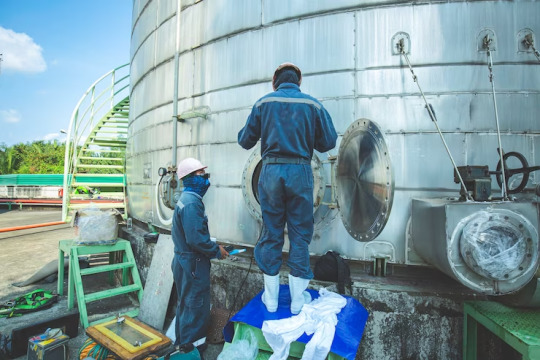
Holding tanks play a crucial role in managing wastewater, particularly in recreational vehicles (RVs), boats, and remote cabins. Regular holding tank pumping is essential to maintain sanitation and prevent environmental contamination. Know more about the significance of holding tank pumping and why it should be on your maintenance checklist.
1. Preventing Overflows and Backups
One of the primary reasons for holding tank pumping is to prevent overflows and backups.
a. Limited Capacity
Holding tanks have limited capacity, and when they reach their limit, sewage can overflow or back up into your living space or the environment.
b. Unpleasant Consequences
An overflow or backup can result in foul odors, unsanitary conditions, and costly clean-up efforts.
2. Maintaining Hygiene and Sanitation
Regular holding tank pumping is essential for maintaining hygiene and sanitation, particularly in confined spaces like RVs and boats.
a. Preventing Odors
An overfilled holding tank can release unpleasant odors, making your living space uncomfortable and unlivable.
b. Disease Prevention
Sewage contains harmful bacteria and pathogens. Pumping your holding tank regularly helps prevent the spread of diseases and illnesses.
3. Environmental Responsibility
Environmental responsibility is a critical aspect of holding tank pumping.
a. Preventing Pollution
Overflowing or leaking holding tanks can result in the contamination of nearby soil and water sources, harming the environment.
b. Compliance with Regulations
Many areas have regulations in place that require the proper management and disposal of wastewater from holding tanks. Compliance with these regulations is essential to protect natural ecosystems.
4. Avoiding Costly Repairs
Neglecting holding tank pumping can lead to costly repairs and maintenance.
a. Tank Damage
An overfilled holding tank can strain its structure and components, potentially leading to leaks, cracks, or even tank failure.
b. Plumbing Issues
Backups from an overflowing holding tank can damage plumbing systems and fixtures, resulting in costly repairs.
5. Peace of Mind During Travel
For RV and boat owners, regular holding tank pumping provides peace of mind during travels.
a. Worry-Free Adventures
Knowing that your holding tank is properly maintained allows you to enjoy your trips without the stress of potential sewage issues.
b. Convenience
Holding tank pumping services are widely available, making it convenient to schedule maintenance during your travels.
6. Pump-Out Frequency
The frequency of holding tank pumping depends on several factors, including tank size, usage, and regulations.
a. Usage
The more frequently you use your RV, boat, or cabin, the more often you'll need holding tank pumping.
b. Tank Size
Larger holding tanks can store more wastewater, allowing for less frequent pumping.
c. Regulations
Local regulations may dictate how often holding tanks should be pumped. It's essential to be aware of and adhere to these regulations.
Holding tank pumping is a vital aspect of maintaining sanitation, preventing environmental contamination, and ensuring peace of mind during your travels. Neglecting this essential maintenance task can lead to overflows, unpleasant odors, environmental harm, and costly repairs. By scheduling regular holding tank pumping, you not only ensure the longevity of your holding tank but also contribute to a cleaner and safer environment for everyone.
0 notes
Text
From Ancient Rome to Modern Homes: A Brief History of Septic Systems
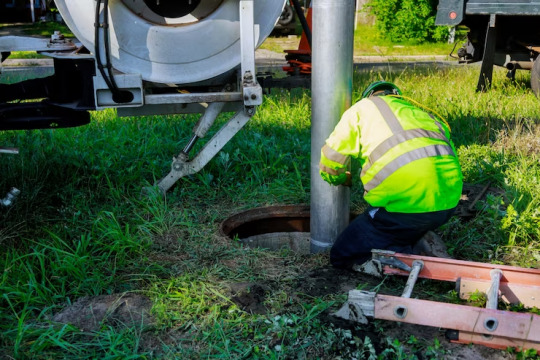
Septic systems have a rich history dating back to ancient civilizations. These systems have evolved over time to become essential components of modern homes, providing efficient wastewater management. Let's take a journey through history to explore the origins and development of septic systems.
1. Ancient Innovations
Early Sewer Systems:
Ancient civilizations like the Indus Valley and ancient Rome developed rudimentary sewer systems.
Romans used channels and drains to carry wastewater away from populated areas.
Infiltration Trenches:
In ancient times, trenches filled with gravel were used to dispose of wastewater.
These early systems allowed natural filtration before wastewater reached water bodies.
2. 19th Century Advancements
First Septic Tank:
The concept of a septic tank emerged in the 19th century.
In 1860, John Mouras, a Frenchman, patented the first septic tank design to manage household waste.
Infiltration Fields:
Infiltration fields, also known as leach fields, became an important addition to septic systems.
Effluent from septic tanks was distributed through pipes into gravel-filled fields for further treatment.
3. Modern Era and Regulations
Scientific Understanding:
Advances in microbiology and engineering improved the understanding of septic system functioning.
These developments led to better designs and maintenance practices.
Environmental Concerns:
Growing environmental awareness highlighted the importance of proper wastewater treatment.
Regulations were established to ensure safe disposal and prevent groundwater contamination.
4. Components of Modern Septic Systems
Septic Tanks:
Modern septic tanks are designed to separate solids from liquids, allowing anaerobic digestion of organic matter.
Effluent flows into the leach field for further treatment.
Leach Fields:
Leach fields consist of perforated pipes or chambers buried in gravel-filled trenches.
Effluent is released into the soil, where natural processes further purify it.
5. Importance of Maintenance
Regular Pumping:
To prevent system failure, septic tank cleaning and pumping are essential.
Professional services like "septic tank cleaning Kansas City" ensure proper maintenance.
Conclusion
Septic systems have come a long way from ancient civilizations' simple drainage channels to the sophisticated systems in modern homes. Advancements in engineering, microbiology, and environmental awareness have led to safer and more effective wastewater management. As we appreciate the history of septic systems, it's crucial to prioritize maintenance through services like "septic tank cleaning Kansas City" to ensure the longevity and efficiency of these vital systems in our modern lives.
1 note
·
View note